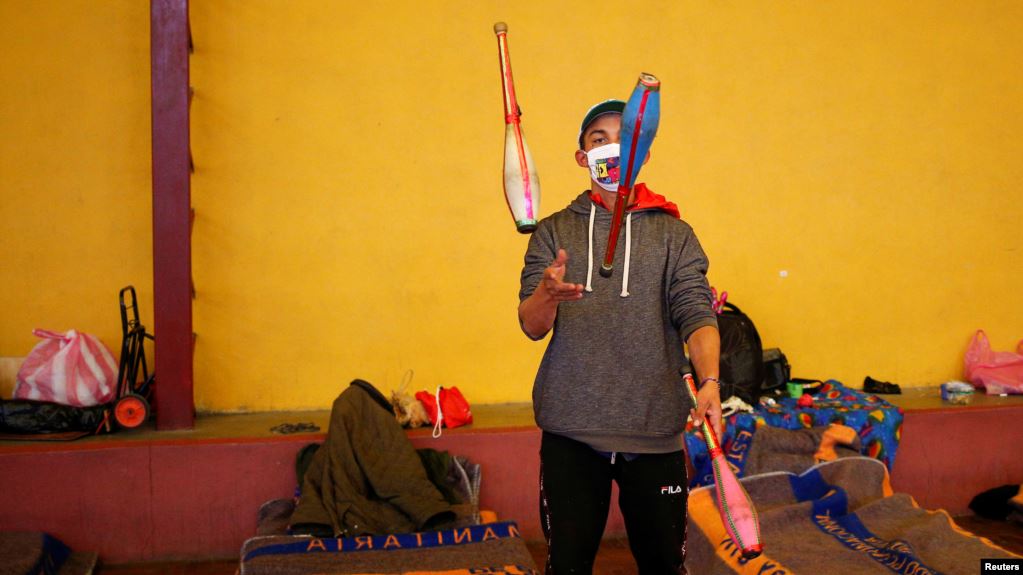پادکست VOA: اصطلاحات انگلیسی – ریشه قرنطینه
سلام با بیست و سومین قسمت از مجموعه “Words and Their Stories” (کلمات و داستان آن ها) از سری پادکستهای VOA در خدمت شما هستیم. این مجموعه پادکست به توضیح اصطلاحات رایج زبان انگلیسی، داستان ایجاد شدنشون و نحوه استفاده از آن ها در مکالمه می پردازه. در این قسمت از پادکست VOA: اصطلاحات انگلیسی – ریشه قرنطینه قراره با ریشه کلمه قرنطینه (Quarantine) آشنا میشی.
کلمه ی بسیار رایج قرنطینه Quarantine که این روزا بیشتر سر زبون ها افتاده از کلمه ی فرانسوی “quarantaine” گرفته شده به معنی “a period of about 40 days” (یه دوره ی چهل روزه)
VOA – Words and Their Stories – 23: Where Quarantine Comes From

متن انگلیسی پادکست VOA: اصطلاحات انگلیسی – ریشه قرنطینه:
And now, Words and Their Stories, from VOA Learning English.
In human history, the spread of infectious diseases to mass numbers of people is not uncommon. Pandemics, historians say, started when we humans began farming land and living in communities. Pandemics increased as trade between communities and nations increased.
From smallpox to influenza to the plague, there was often no medical treatment to prevent or cure these diseases. Take for example, the plague that hit Europe in the 14th century. It is also known as the “Black Death.”
With no medical prevention available, isolating the sick was the only effective public health defense. With many other pandemics, the best chance at prevention was to keep sick people away from healthy people. This is called a quarantine.
And that is our word for today.
Word experts at Merriam-Webster explain that the word “quarantine” has both French and Italian influences.
In the late 1400s, English speakers borrowed the French word quarantaine which means “a period of about 40 days.” Quarante is the word for the number 40 (forty) in French.
At that time, quarantaine had a religious meaning. Some word experts say it refers to the period of time Jesus spent fasting — going without food — in the desert.
However, over time, people began using it for more than just religious situations. For example, it referred to the delay of putting a legal agreement in place. In the early 1500s, quarantine also was used to describe a “period of 40 days in which a widow has the right to remain in her dead husband’s house.”
Around the same time, other city-states in Europe were also using a similar word — quarantena. This word was used to mean the “isolation of a ship to protect the port city from potential disease.”
The Centers for Disease Control and Prevention explains on its website that “quarantine was first introduced in 1377 on Croatia’s Dalmatian Coast.”
By the 1600s, English speakers began using quarantena to mean “isolation as protection from disease.” As the French form of this word (quarantaine) was already being used, English kept it but gave it a new meaning. It was now an English word based on French spelling — with an Italian definition and Latin roots.
In North America in the late 1600s, quarantine was introduced to control yellow fever. The CDC says this was the case in New York (1688) and in Boston (1691).
That’s the word history. Now, let’s talk about how to use “quarantine” in a sentence.
For starters, it is both a noun and a verb.
As a noun, we often use it after the preposition “under.” If someone is under quarantine, they are required to physically keep away from others. For example: “When she was under quarantine, the woman learned how to play the piano and speak simple Russian.”
The word “quarantine” is often combined with other nouns. In the news and from government announcements you may read about, quarantine guidelines, quarantine authority and quarantine systems.
As a verb, we can say that some young people in the United States are not fully self-quarantining themselves.
So, isolation and quarantine are both ways to help protect the public. They both prevent exposure to people who have or may have a contagious disease.
And that is all the time we have for this Words and Their Stories. Until next time … I’m Anna Matteo!
لیست واژگان این پادکست
pandemic (پاندمی) – n. medical : an occurrence in which a disease spreads very quickly and affects a large number of people over a wide area or throughout the world
isolate ( منزوی کردن) – v. to set apart from others
widow (بیوه) – n. a woman who has lost her spouse or partner by death and usually has not remarried
potential (پتانسیل) – adj. a chance or possibility that something will happen or exist in the future
authority (قدرت) – n. the power to give orders or make decisions : the power or right to direct or control someone or something
exposure (قرار گرفتن در معرض بیماری) – n. the fact or condition of being affected by something or experiencing something : the condition of being exposed to something
contagious (مسری) – adj. having a sickness that can be passed to someone else by touching
امیدوارم از پادکست VOA: اصطلاحات انگلیسی – ریشه قرنطینه لذت برده باشید. برای دسترسی به قسمت های دیگر این پادکست می توانید از صفحه ی پادکست VOA – اصطلاحات انگلیسی آکادمی مجازی آموزش زبان ۲۴talk دیدن کنید.
همچنین برای گوش دادن به پادکست های سطح بندی شده British Council می توانید به صفحه ی پادکست British Council آکادمی مجازی آموزش زبان ۲۴talk یا برای گوش دادن به پادکست های BBC به صفحه ی پادکست ۶ دقیقه انگلیسی (BBC) آکادمی مجازی آموزش زبان ۲۴talk مراجعه کنید.
گوش دادن به پادکست روش خوبی برای تقویت مهارت شنیداری و هم چنین یادگرفتن کلمات در بستر یک موضوع خاصه که این به تقویت مهارت مکالمه انگلیسی نیز کمک زیادی می کنه.
اگه دنبال این هستی که مهارت های مکالمه زبان انگلیسیت رو بیشتر از این تقویت کنی بهت پیشنهاد میکنم در دورهی مکالمه زبان انگلیسی آکادمی مجازی آموزش زبان انگلیسی ۲۴talk شرکت کنی که با یه برنامه منسجم و خلاقانه کمک میکنه در زمان کوتاه بتونی به راحتی و روانی انگلیسی صحبت کنی.







